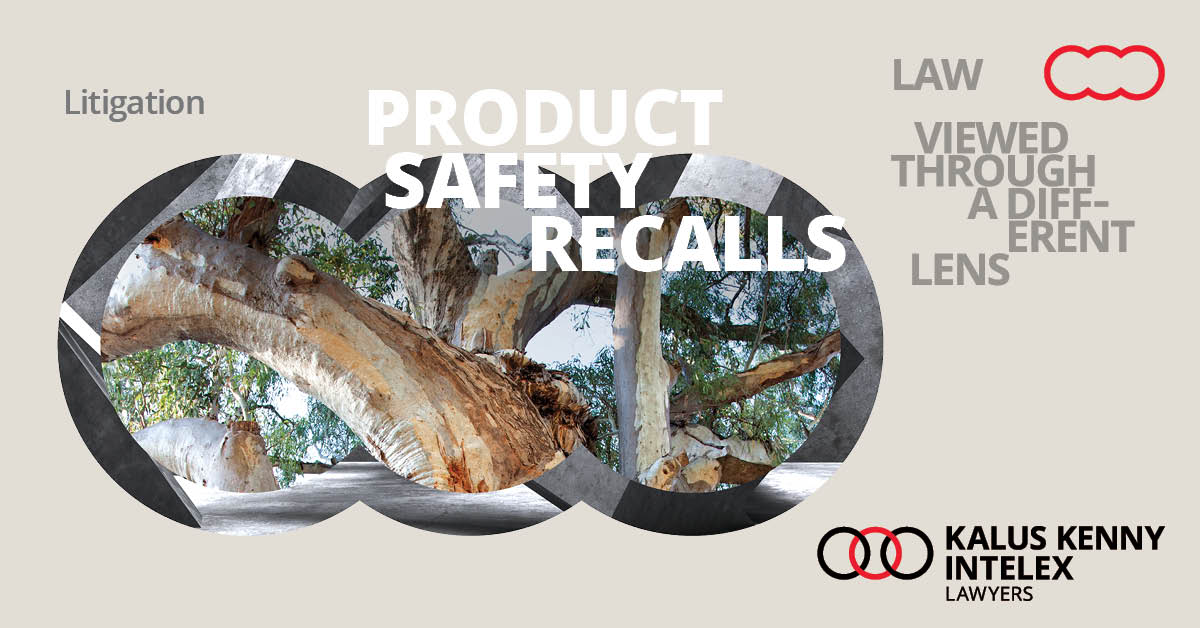Explosions? Choking hazards? Contaminated food? Banned goods?
If you supply products which have (or may) injure consumers, you should act fast to promote consumer safety, minimise risk, and preserve your brand’s image.
However, you must also observe your Australian Consumer Law (ACL) duties along the way – or else risk facing some dire consequence.
Types of recalls
Compulsory Recalls
When suppliers do not take satisfactory action to prevent goods from causing injury, the responsible minister (via the ACCC website) may order a compulsory recall by issuing a written recall notice.
This notice may, among other matters, require suppliers to disclose the nature of the defect, and specify the manner and period in which action must be taken.
While the ACCC dictates terms, the supplier must comply or else risk facing significant penalties. Suppliers ultimately have little (or in some cases, no) control over how a compulsory recall should be carried out.
Voluntary Recalls
To avoid these more stringent terms, a supplier may initiate a voluntary recall by providing written notice to a responsible minister (via the ACCC website) within 2-days of taking action because:
- the consumer good will or may cause injuries, including from reasonably foreseeable use (or misuse); or
- the consumer good does not comply with a mandatory safety standard or product ban.
Voluntary recalls are generally enacted to maximise consumer safety and minimise liabilities that may arise because unsafe products are occupying the marketplace. It is also beneficial for suppliers to coordinate with the ACCC to reach a satisfactory resolution for consumers.
While every recall will be different, most voluntary recalls will, in practice, require the supplier to:
- stop the supply of the dangerous product, and alert other entities in the supply chain;
- notify the ACCC within the 2-day time limit by submitting an online form via the Product Safety Australia website;
- submit a recall notice to the ACCC for approval which outlines the product description, defect, safety risk and necessary consumer action;
- alert consumers by promoting and sharing the ACCC’s approved recall notice;
- offer an approved remedy to consumers; and
- submit periodical ‘Monthly Progress Reports’ to the ACCC via the Product Safety Australia website until it is satisfied that all reasonable steps have been taken to remove the product from the marketplace.
A successful product safety recall should carefully consider other aspects such as logistical needs, consumer relations, and advertising.
Mandatory reporting obligations
Under the ACL, suppliers are required to submit a mandatory report of any incidents which result in death, serious injury, or illness within 2-days of becoming aware.
This includes incidents where:
- the supplier considers that the death, serious injury or illness was caused, or may have been caused, by the use or foreseeable misuse of the good; or
- the supplier becomes aware that someone else (including the affected person) considers that the death, serious injury or illness was caused, or may have been caused, by the use or foreseeable misuse of the good.
When the above applies, a written notice must be submitted to the responsible minister (via the ACCC website). However, if you are in doubt, it is recommended that a mandatory report be submitted to the ACCC.
Suppliers are also encouraged lodge voluntary reports ‘near-miss’ incidents, including where:
- the incident did not cause death, serious injury or illness, but may have with a slight change of circumstances or events; or
- the injury or illness is serious but developed slowly over time (not acute); or
- a pre-existing ailment, disorder, defect or morbid condition contributed to the death, serious injury or illness; or
- the serious injury or illness was treated by a health practitioner who is not a medical practitioner or a nurse; or
- the incident was caused by a person misusing the consumer good, but the misuse was unforeseeable.
This is considered the ‘best practice approach’ to reporting, reducing the risks of committing a criminal offence or risking civil penalties.
It is important that suppliers act quickly to ensure consumer safety and compliance with the duties and obligations detailed in the ACL. If you ignore the problem, it will only snowball from that point on.
If you need any advice regarding your recall or mandatory reporting obligations, please contact Heather Richardson and William Johnson.



